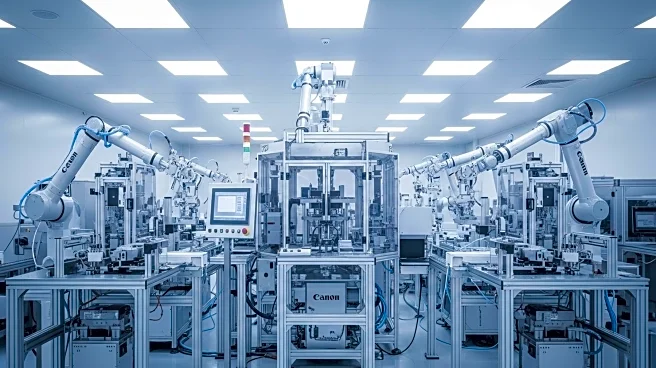What's Happening?
Several pharmaceutical companies are making significant investments in manufacturing to compete in the lucrative obesity drug market. Companies like Metsera and Viking Therapeutics are securing production capacity early in their drug development phases, deviating from traditional approaches. Metsera's efforts culminated in a $5 billion acquisition by Pfizer, highlighting the importance of manufacturing cost advantages. Larger firms like Amgen and Roche are also investing heavily, with Amgen committing over $1 billion to expand its facilities in North Carolina. These investments are aimed at meeting the growing demand for obesity treatments, which affect over a billion people globally.
Why It's Important?
The obesity drug market represents a significant opportunity for pharmaceutical companies, given the widespread prevalence of obesity worldwide. By investing early in manufacturing, companies can ensure they have the capacity to meet demand and potentially reduce costs. This strategy could provide a competitive edge against established players like Eli Lilly and Novo Nordisk. The investments also reflect a broader trend in the industry towards securing supply chains and production capabilities as a strategic priority, which could influence future drug development and commercialization strategies.
What's Next?
As companies continue to invest in manufacturing, the competition in the obesity drug market is expected to intensify. Firms will likely focus on optimizing production processes and improving yield management to further reduce costs and increase efficiency. Additionally, as more drugs progress through clinical trials, companies will need to navigate regulatory approvals and market entry strategies. The ongoing investments suggest that the market will see increased innovation and potentially more affordable treatment options for patients.








